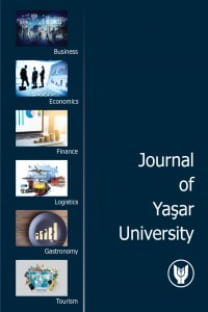ARENDT’S CRITIQUE of The NATION-STATE in The ORIGINS of TOTALITARIANISM
Ulus-Devlet, Totaliterlik, Emperyalizm, Siyasal düşünce
ARENDT'S CRITIQUE OF THE NATION-STATE IN THE ORIGINS OF TOTALITARIANISM
Nation-state, Totalitarianism, Imperialism, Political thought,
___
- Arendt, Hannah. 1979. The Origins of Totalitarianism. NewYork: Harcourt Brace.
- Benhabib, Seyla. 1996. The Reluctant Modernism of Hannah Arendt. London: Sage Publication.
- Canovan, Margaret. 1992. Hannah Arendt: A Reinterpretation of Her Political Thought. Cambridge: Cambridge University Press.
- Tsao, Roy T. (2004). “Arendt and the Modern State: Variations on Hegel in The Origins of Totalitarianism”. The Review of Politics, Vol. 66 No: 1, pp. 105-136.
- Villa, Dana. (2000). “Introduction: The Development of Arendt’s Political Thought” in The Cambridge Companion to Hannah Arendt (Ed.) Dana Villa. Cambridge: Cambridge University Press, pp. 1-24.
- ISSN: 1305-970X
- Başlangıç: 2006
- Yayıncı: Yaşar Üniversitesi
BASEL SERMAYE UZLAŞISI KAPSAMINDA TÜRK BANKACILIK SEKTÖRÜNDEKİ NİHAÎ GELİŞMELER
WHEN PEOPLE ARE THE MESSAGE… PUBLIC PARTICIPATION IN NEW MEDIA: USER GENERATED CONTENT
W-PENCERELİ-BİLİM TASARIM TEKNOLOJİSİNİN W@W-DESENLERİ
CİSİMLERİ NASIL VE NE KADAR AYRINTILI GÖREBILIRIZ? RESIM VE GÖRMEDE ÇÖZÜNÜRLÜK
PERSONEL GÜÇLENDİRME: İMALAT SANAYİİ İŞLETMELERİNDE BİR ARAŞTIRMA
EGE BÖLGESİNDE ÖZEL İSTİHDAM BÜROLARI
KURUMSAL GIRIŞIMÇILIK: KAVRAMSAL YAPI ÜZERINE BIR TARTIŞMA
Çağri BULUT, Bora AKTAN, Senem YILMAZ, Ahmet Murat FIŞ
Serpil KAHRAMAN, Ela Çolpan NART
